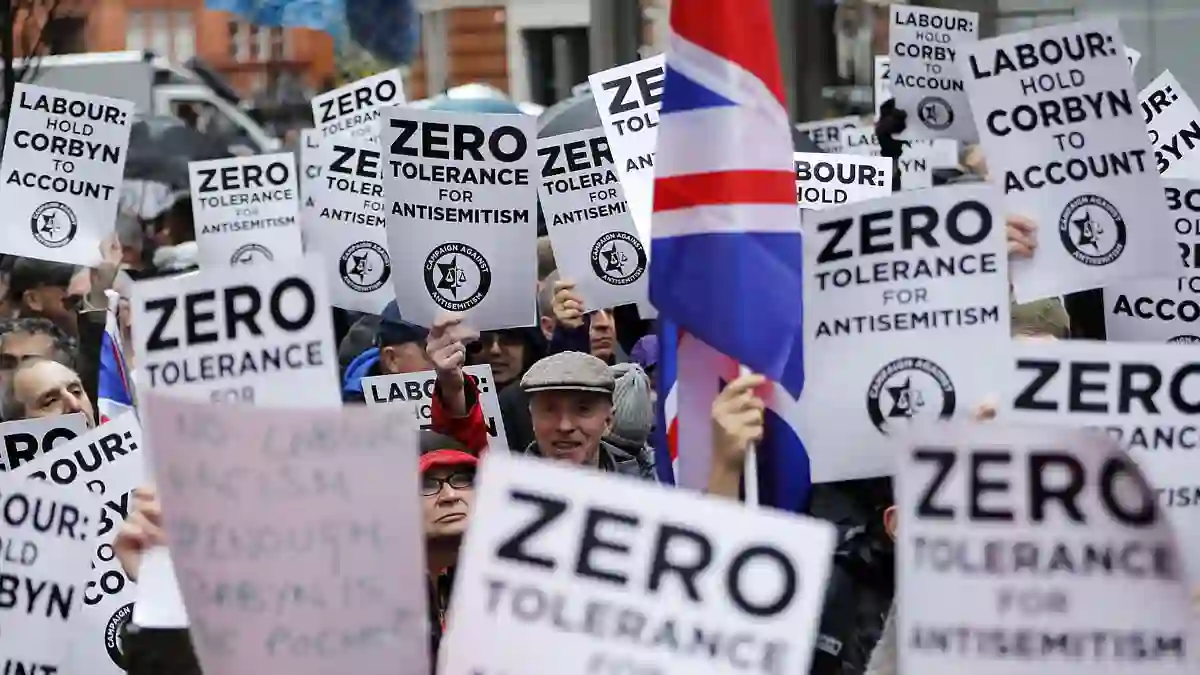What was once considered unthinkable in Britain’s classrooms is now becoming disturbingly common.
Jewish educators across the country are opening up about a sharp increase in anti-Semitic abuse they’ve endured since mid-2023.
From offensive graffiti to verbal assaults, the issue is no longer confined to the shadows—it’s taking center stage in schools, universities, and even public institutions.
Teachers Warn of Chants, Slurs, and Open Hostility
Many Jewish teachers are now dealing with repeated harassment, with some reporting that students have yelled “Free Palestine” or used deeply offensive slurs like “f*** the Jews” during lessons.
One educator shared that such incidents have occurred “on multiple occasions.”
A recent survey conducted by the National Association of Schoolmasters Union of Women Teachers (NASUWT) revealed a troubling picture.
Over half of Jewish teachers—51%—said they had personally experienced anti-Semitism since May 2023.
Among the broader pool of more than 300,000 union members surveyed, nearly half reported seeing swastika graffiti on school grounds, and 39% said they’d heard Nazi-related comments.
Hurtful Stereotypes and Wrong Assumptions
Beyond overt slurs, some teachers are also grappling with more insidious forms of prejudice.
There have been instances where staff members were told, “It’s not racist to say Jews are rich—it’s just a fact,” or were wrongly assumed to be Israeli rather than British.
These moments, while perhaps less aggressive, reflect a deeper lack of understanding and empathy that’s equally harmful.
Union Urges Government to Step In
The NASUWT has called on Education Secretary Bridget Phillipson to urgently address what they’ve described as “unacceptable trends.”
Matt Wrack, Acting General Secretary of the union, warned that social media misinformation and far-right rhetoric are fueling the rise in abuse.
He emphasized that many teachers now feel unsafe being open about their Jewish identity at work.
“It’s obvious that schools need robust support to deal with anti-Semitism,” Wrack said.
“No one should feel afraid to go to work because of their faith.”
Antisemitism Extending Beyond the Classroom
The issue doesn’t stop at schools.
Universities have also seen an uptick in anti-Jewish sentiment, especially after the Hamas attacks on October 7.
A report from the Henry Jackson Society found that over 70% of students surveyed believed misinformation in university lectures was influencing their classmates’ views on the Israeli-Palestinian conflict.
Among the falsehoods cited were misleading claims about Israel’s policies and accusations of genocide.
Shocking Attack on Jewish Schoolchildren in London
In one particularly disturbing incident in November, Jewish students traveling home from Jews’ Free School in Kenton, north London, were attacked.
As their buses stopped in Edgware, a group of teenagers from another school began pelting the vehicles with heavy rocks before boarding one and shouting anti-Semitic abuse like “f*** Israel, nobody likes you.”
Some students ran off the bus in fear, while others hid under seats.
Witnesses said the attackers filmed the entire event, adding another layer of humiliation.
Fear and Intimidation on University Campuses
Anti-Semitic attitudes have also made Jewish university students feel unsafe.
Many are reportedly hiding visible symbols of their faith, like the Star of David or kippahs, to avoid being targeted.
Conservative peer Lord Leigh of Hurley criticized certain teachers’ unions for promoting anti-Israel content, including filming themselves removing Israeli goods from supermarket shelves.
Baroness Deech, a former head of the Office of the Independent Adjudicator for Higher Education, warned that some of the hostility stems from religious indoctrination and failures in Holocaust education, which focus too much on the past and not enough on modern anti-Semitism.
Universities and Government Agencies Under Pressure
The Office for Students said universities must have strong policies in place to protect students from harassment and offer effective responses when incidents occur.
It has published guides and resources aimed at debunking anti-Semitic myths and helping institutions better support their Jewish communities.
But the problem isn’t limited to education alone.
Antisemitism Rising Across Public Sectors
A review commissioned by the Board of Deputies of British Jews found rising levels of discrimination not just in education, but also in the NHS, the arts, and even within the police.
Lord John Mann, who helped lead the review, said Jewish individuals have faced a “public onslaught” of hate since October 7.
Speaking to the BBC, he noted that many Jewish employees feel marginalized, and that anti-Semitism is often inadequately addressed in diversity and equality training.
Some NHS workers claimed that their concerns had been ignored or downplayed.
In response, the NHS said it takes all forms of discrimination seriously and reaffirmed its commitment to providing inclusive care and workplace protections.
A Disturbing Snapshot of Hate in Numbers
Despite a slight drop in total incidents compared to the previous year, the figures remain alarmingly high. In 2024 alone, the UK recorded 3,528 anti-Semitic incidents—the second-highest total ever.
These included 201 assaults, 250 threats, nearly 3,000 cases of abusive behavior, and dozens of acts of vandalism.
The Community Security Trust (CST), the group that compiled the data, warned that the ongoing Middle East conflict continues to leave a “lasting impact” on domestic hate crimes.
What Comes Next?
As tension in the Middle East persists, it’s clear that ripple effects are being felt far beyond the region.
The rise in anti-Semitism across the UK’s education system and public sectors signals a broader challenge—one that requires urgent, unified action.
From schools to lecture halls, from buses to hospitals, British institutions must now ask themselves: are we doing enough to keep our Jewish citizens safe, respected, and heard?
